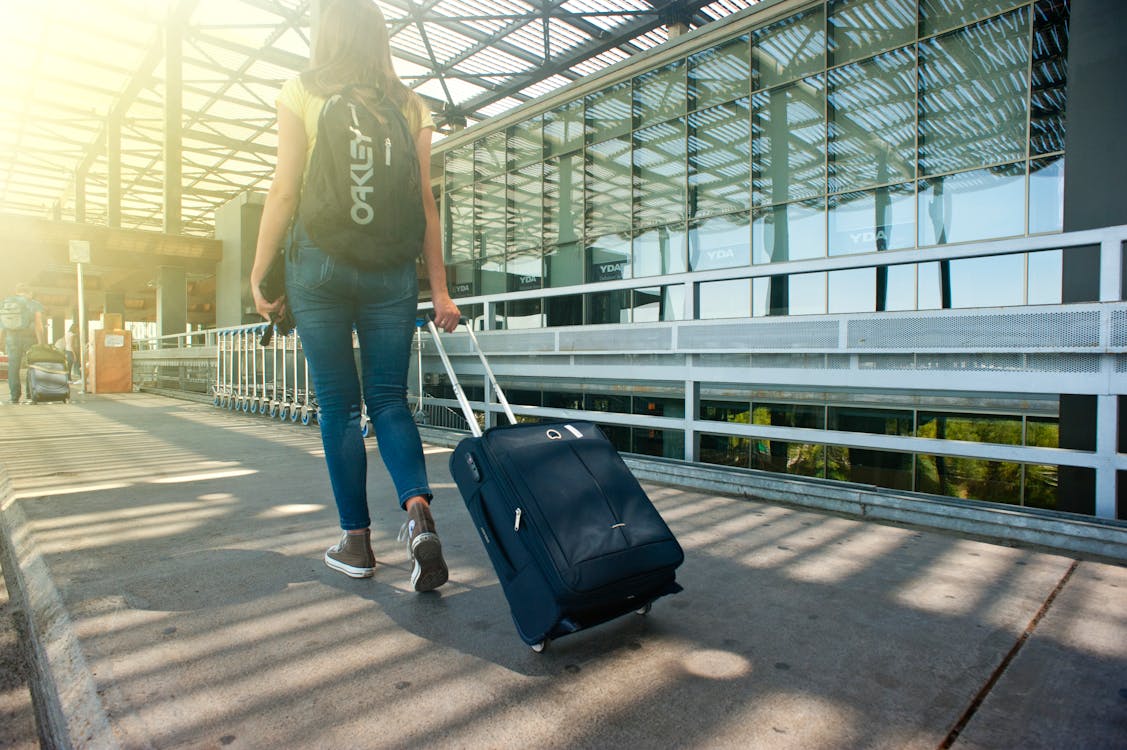Traveling can be a stressful experience for anyone, but for individuals managing opioid dependence or recovering from substance use, it poses additional challenges.
According to the WHO, around 296 million people worldwide used drugs at least once in 2021, with approximately 60 million of them using opioids. Among those, about 39.5 million people live with drug use disorders. While most opioid-dependent individuals traditionally relied on illicit substances like heroin, the use of prescription opioids has been on the rise.
For those on medications that are commonly prescribed to manage opioid dependence, maintaining treatment while on the move requires careful planning.
This guide provides practical strategies to help travelers manage withdrawal symptoms and continue their recovery journey smoothly, even while away from home.
Understand Opioid Withdrawal Symptoms
Opioid withdrawal is a serious, sometimes life-threatening condition that occurs when someone dependent on opioids reduces or stops using the drug.
According to the NIH, opioid withdrawal syndrome can result from the use of heroin, morphine, codeine, and prescription opioids like oxycontin and methadone. The severity of withdrawal symptoms varies depending on factors like the duration of drug use and the individual’s health.
Common withdrawal symptoms, as outlined by WebMD, include anxiety, restlessness, insomnia, goosebumps, yawning, and body aches. More severe symptoms can include vomiting, diarrhea, high blood pressure, hallucinations, seizures, and a rapid heartbeat. The most intense symptoms usually improve after the first few days.
Plan Ahead with Medical Advice
It’s essential to consult your healthcare provider before traveling to manage withdrawal symptoms effectively. Discuss your current treatment plan, including any medications you’re using to address these symptoms.
If you’re crossing time zones, consult your doctor about modifying your medication schedule. Disruptions in your routine can impact withdrawal symptoms, so maintaining a consistent dosing schedule is crucial.
Additionally, be aware of potential medication accessibility issues. According to Behavioral Health Business, less than 60% of pharmacies in the United States stock buprenorphine. This medication is commonly used for medication-assisted treatment (MAT) for substance use disorders.
The variation in availability can be particularly challenging for travelers who may need to access medication in unfamiliar locations.
Organize Your Medication
When traveling, it’s essential to organize your medication properly, especially if you rely on prescriptions like Suboxone for managing opioid use disorder (OUD). To ensure a smooth trip, pack enough medication for the entire duration, plus extra in case of delays or emergencies.
It’s necessary to research the local laws at your destination, especially regarding opioid treatments like Suboxone, as regulations vary significantly by country. Some nations have strict rules around controlled substances, and failing to comply could lead to confiscation of medication or legal consequences.
A word of caution for Suboxone users. While Suboxone has been a valuable tool in treating opioid use disorder, it’s important to be aware of potential side effects. Users of the medication face risks of dental injuries associated with Suboxone sublingual films. The Suboxone lawsuit has been filed against the drug manufacturer, Indivior, alleging that the company failed to adequately warn about these risks.
TorHoerman Law emphasizes that Suboxone film has an acidic composition that can slowly wear away tooth enamel. This erosion can lead to tooth decay, cavities, and other dental problems. If you’re taking Suboxone, it’s crucial to uphold excellent oral hygiene. Make sure to brush your teeth consistently, use mouthwash, and attend regular dental check-ups.
Stay Hydrated and Well-Nourished
Staying properly hydrated and nourished is vital for managing mild withdrawal symptoms such as headaches, fatigue, and irritability. Bringing portable snacks can help maintain stable blood sugar levels and prevent energy crashes that could worsen withdrawal effects. A refillable water bottle is a practical tool to help you stay hydrated.
Manage Stress and Anxiety
Travel can bring about significant stress, which may intensify withdrawal symptoms. Developing a stress management plan is crucial, especially since anxiety is a common withdrawal symptom. Packing items that promote relaxation, such as calming music, engaging books, or stress-relief gadgets, can be helpful.
Manage Withdrawal Insomnia
Insomnia is a common withdrawal symptom for individuals struggling with substance abuse. Verywell Mind notes that difficulty sleeping can be extremely distressing and contribute to increased anxiety and irritability. Fortunately, research suggests that long-term recovery can help improve sleep quality.
To manage withdrawal insomnia, consider the following strategies:
- Practice relaxation techniques: Engage in activities like meditation, deep breathing, or progressive muscle relaxation to calm your mind and body.
- Stay active during the day: Regular physical activity can improve sleep quality.
- Explore natural sleep aids: Consider natural options like valerian, melatonin, root, or L-theanine to aid in sleep. However, always consult your doctor before starting any new supplements to ensure they’re safe for you.
Be Prepared for Emergencies
Before your trip, take the time to research and locate nearby medical facilities at your destination that offer urgent care. This proactive step ensures you can access help quickly if necessary. Also, check your travel insurance policy to verify that it covers medical emergencies, including ongoing addiction treatment.
Frequently Asked Questions
What are the emotional withdrawal symptoms?
Emotional withdrawal symptoms encompass depression, anxiety, reduced motivation, and difficulties in experiencing pleasure. Individuals may also experience apathy, which can lead to serious symptoms like hallucinations and delusions. These emotional challenges can significantly impact one’s mental health and overall well-being during the withdrawal process.
How long do withdrawal symptoms last?
The length of withdrawal symptoms depends on the substance involved and the degree of dependence. Symptoms may last anywhere from a few days to several weeks, and in some instances, they can continue for months. Individual factors and the specific substance significantly influence the duration of withdrawal.
Does exercise reduce withdrawal symptoms?
Yes, exercise can reduce withdrawal symptoms. Physical activity is a great way to improve your mood and reduce anxiety and depression related to withdrawal, as it releases endorphins. It also promotes better sleep and can increase overall well-being, making it a beneficial addition to a recovery plan during the withdrawal process.
It can be difficult to manage withdrawal symptoms when traveling, but it is achievable with the right preparation and assistance. By consulting with healthcare professionals and implementing effective coping strategies, individuals can navigate this difficult experience with greater ease.
If you experience severe withdrawal symptoms, reach out to healthcare providers, support groups, or addiction treatment centers for assistance.
Italian Dating & Chat for Italian Singles

Virtually meet thousands of like-minded Italian singles and connect at lightning speed; on desktop, tablet, and your beloved phone. Chat into the wee hours of the night if you’d like. Post photos, share your interests and dreams-we’ll help you look your best while you do it.Here we make it easy to meet Italian singles and feel things out first so when you do go on that first date, or meet for espresso, you can relax and be yourself. Try it now!






